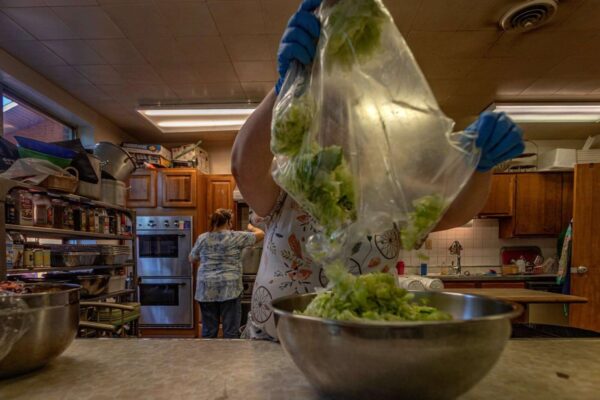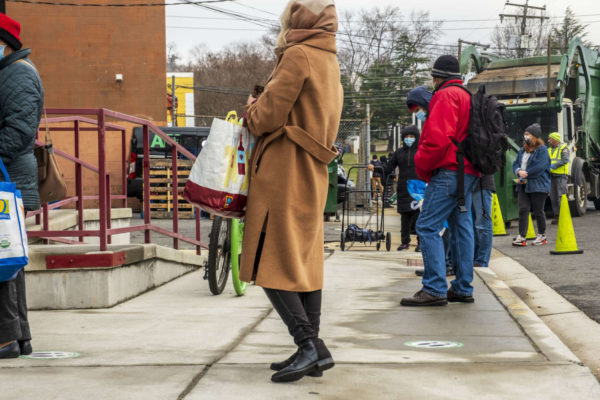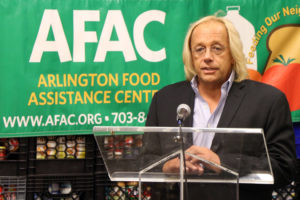
A new coalition will tackle how Arlington nonprofits and county government distribute food and support people who are food insecure.
The group held its kick-off meeting at Central Library last week, attended by 65 people. It will be focused on three areas: improving food access, increasing outreach to the community and making systemic change through policy advocacy.
The coalition “creates the infrastructure to systematically monitor the needs of Arlington’s food security system, allowing us to not only act more quickly when greater need arises, but also to identify and rectify systemic challenges earlier,” says County Board member Matt de Ferranti, who campaigned in 2018 on ending child hunger by 2022.
Although considered one of the wealthier localities in the D.C. area, several thousand Arlingtonians do not have consistent access to healthy meals and pantry and fridge staples. Arlington has historically supported these individuals through a patchwork quilt of nonprofit grocery and meal distribution programs, while county staff processed food stamp applications and Arlington Public Schools provided free and reduced-price breakfasts and lunches.
That began to change when Arlington County hired a food security coordinator, Stephanie Hopkins.
“My job is to look at the bigger picture,” she tells ARLnow. “One of the things I found when I started was that there wasn’t a good centralization of resources. Arlington Food Assistance Center and smaller churches each promoted their services, while the county promoted its programs, but there wasn’t a list of everything that’s available.”
The first step, says de Ferranti, was hiring Hopkins to get a better baseline of food assistance needs in Arlington. She worked with the Urban Institute to release a study on food insecurity and stood up a task force — comprised of food pantries, community leaders, and school and county staff — to develop a strategic plan to address hunger over the next five years.
“A lot of folks worked adjacent to each other, knew each other, but had few opportunities to work together,” she said. “Through this process, they made friendships and professional relationships where now, if they need something, they call each other.”
But still, Covid and inflation have interrupted this work, de Ferranti acknowledged.
“There has been progress, with a couple of more food service sites that help children, but we have much, much more to do on the goal of ending child hunger in Arlington,” he said. “I am committed to that work and will work with APS, the School Board, and Bethany Sutton in particular on child hunger.”
The coalition is tasked with implementing the strategic plan, which was released in October 2022. By January 2024, Hopkins says she aims to have at least one new food distribution location, at least one new tool for committing resources to residents and more accurate data on meal and grocery distribution trends.




